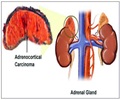
In order to investigate this, Shaw and colleagues used the 2D:4D measure, which is the ratio of the length of the second digit (index finger) to the length of the fourth digit (ring finger), to measure prenatal testosterone exposure.
This study is the first to use this method to examine prenatal testosterone exposure as a determinant of a communication trait.
This method involved measuring each finger from where it meets the palm of the hand to the tip. In addition, each hand was photocopied individually with the palm flat, facing downward, with the fingers splayed naturally, and the same measures were made from the photocopy. Subjects then filled out the Verbal Aggression scale as well as the HEXACO Personality Inventory and the Argumentativeness scale.
The findings suggested that both men and women with smaller 2D:4D ratios self-reported themselves to be more verbally aggressive. Although a small degree of verbal aggression may be beneficial for a person (e.g., being able to stand up for yourself if attacked), higher degrees of verbal aggression have been shown to be detrimental to one's personal life (e.g., problems maintaining close personal relationships, loss of job).
"Understanding the causes of verbal aggression, both biological and social, will allow therapists to have a greater understanding of how to work with individuals who may be more prone to use verbal aggression. What the findings of the current study suggest is that verbal aggression may result from a number of cognitive and affective decisions that are made throughout an interaction," Shaw said.
Advertisement
"With multiple observations of a given relationship, there is greater external validity and confidence in the study findings," he added.
Advertisement
Source-ANI














